
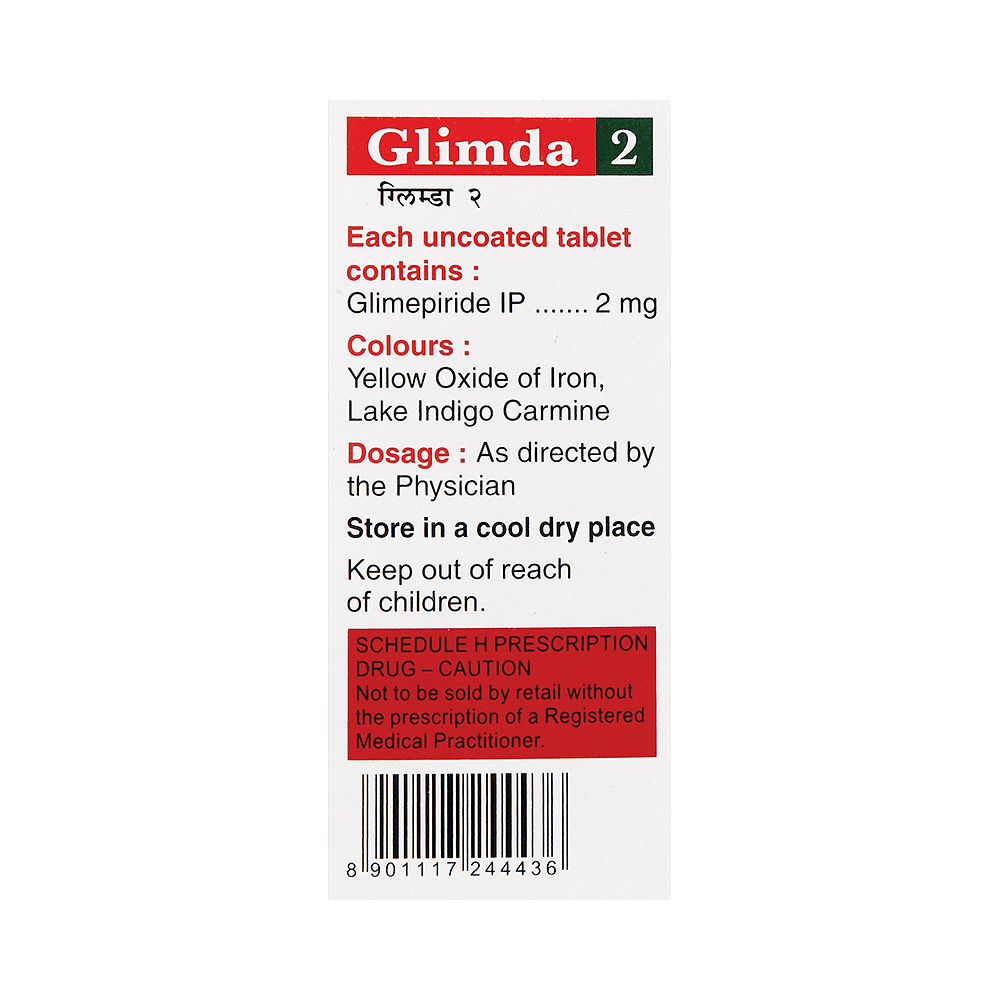
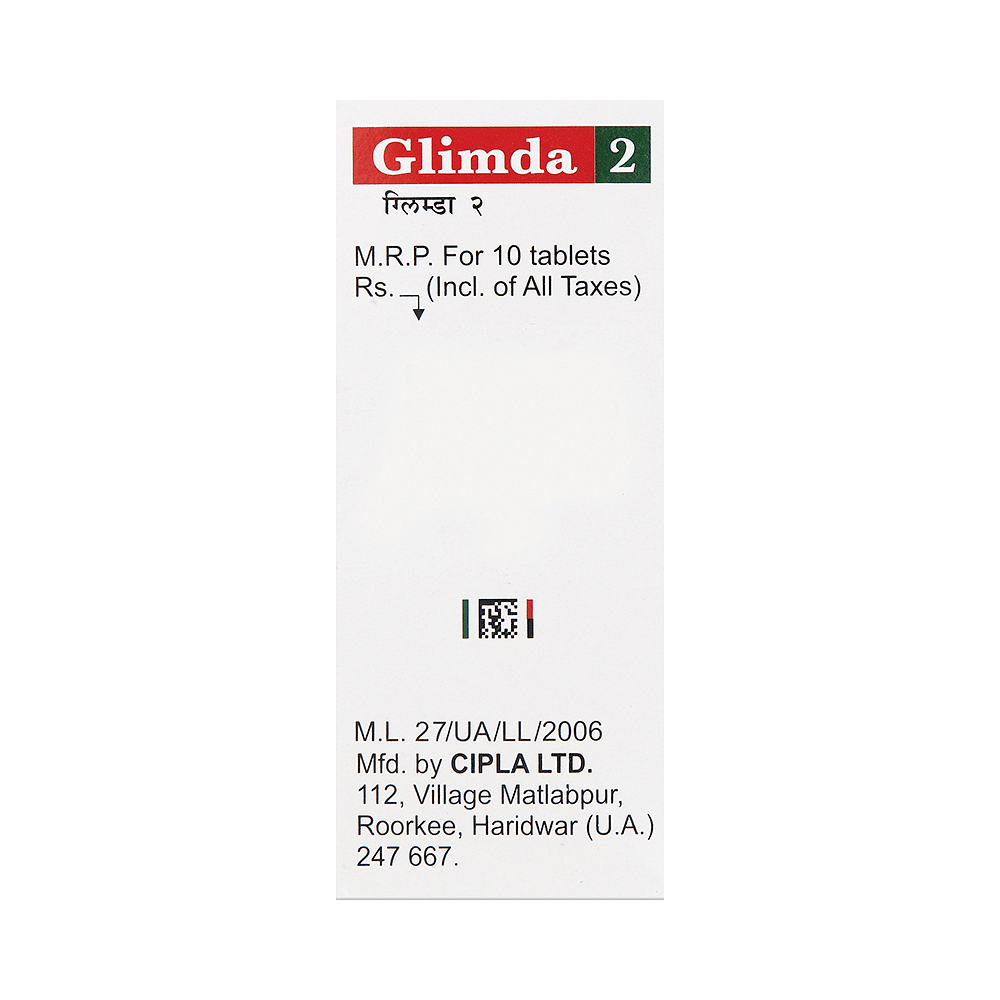
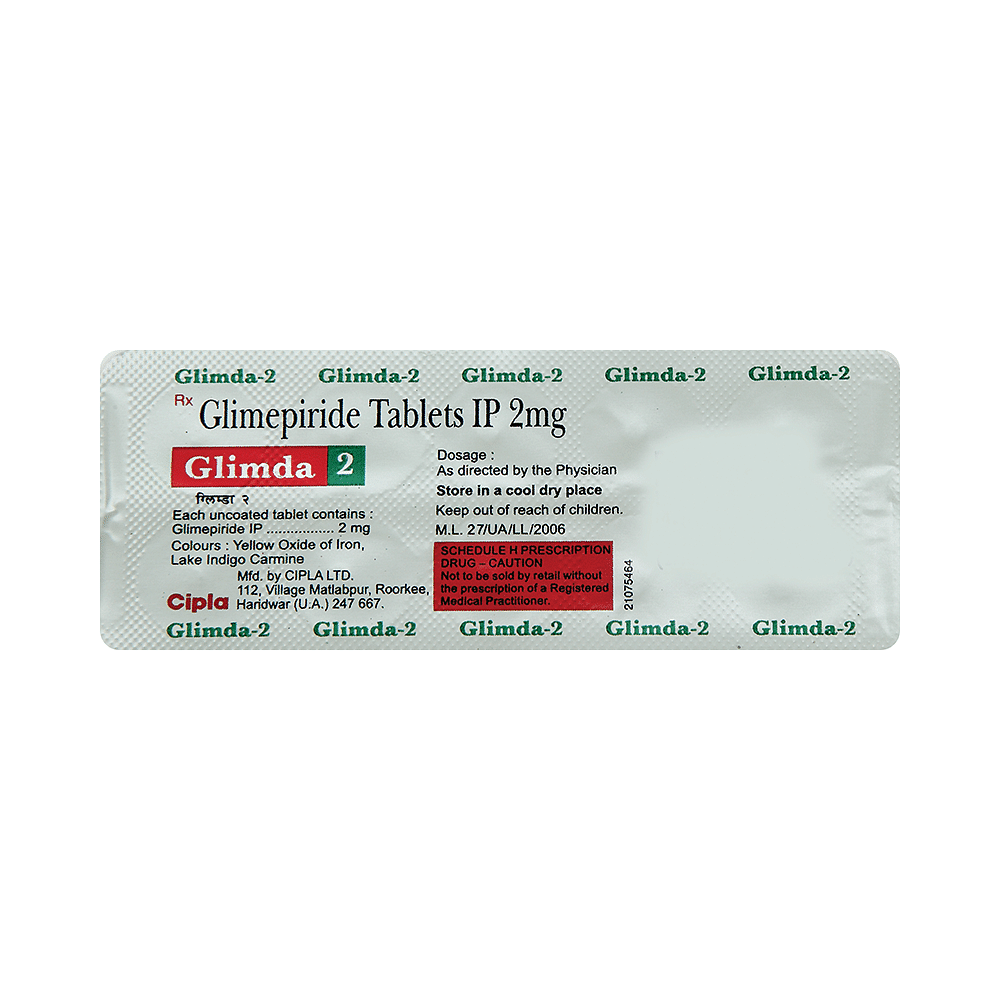
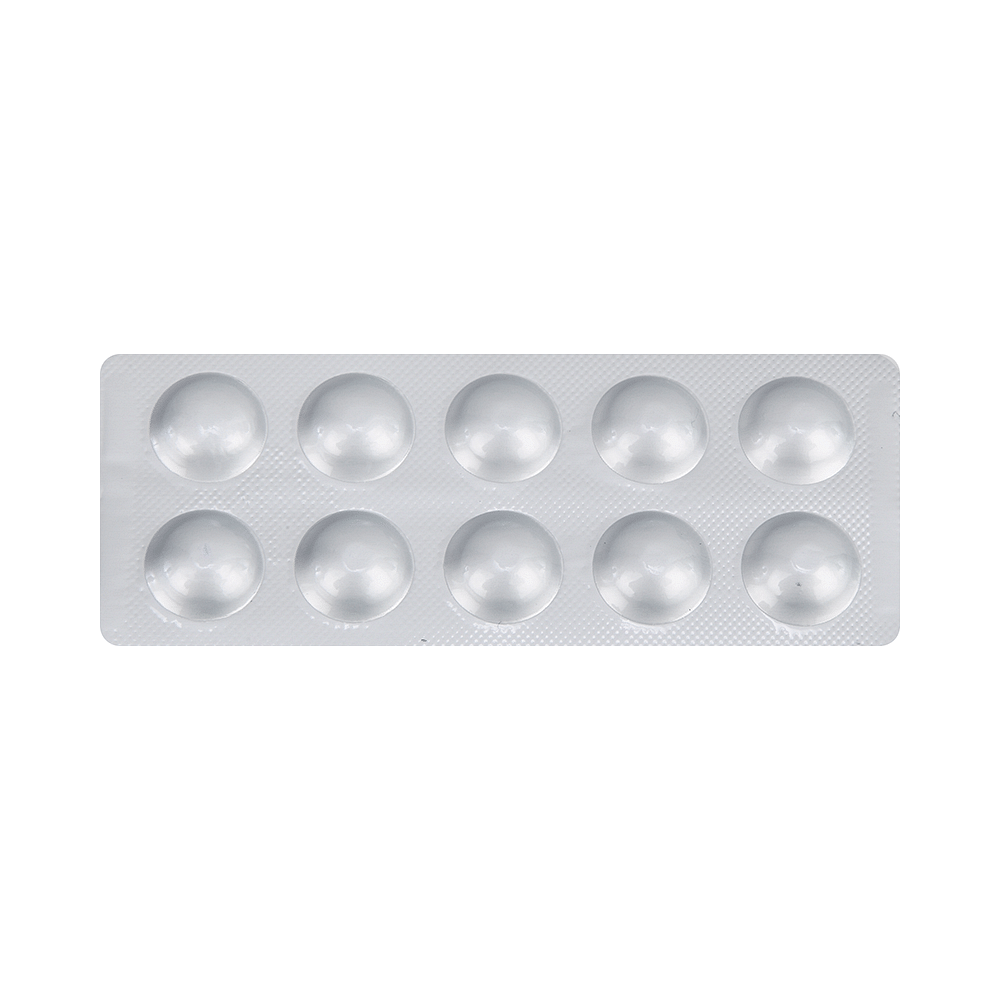
Glimda 2 Tablet
Manufacturer
Cipla Ltd
Salt Composition
Glimepiride (2mg)
Key Information
Short Description
Glimda 2 Tablet is a sulfonylurea medication used to treat type 2 diabetes mellitus in adults, helping to control blood sugar levels and prevent serious complications.
Dosage Form
Tablet
Introduction
Glimda 2 Tablet is an antidiabetic medication that belongs to a group of medicines called sulfonylureas. It is used to treat type 2 diabetes mellitus in adults. It helps control blood sugar levels in people with diabetes thereby preventing serious complications of diabetes such as kidney damage and blindness.
Directions for Use
Take this medicine in the dose and duration as advised by your doctor. Swallow it as a whole. Do not chew, crush or break it. Glimda 2 Tablet is to be taken with food.
How it works
Glimda 2 Tablet is an antidiabetic medication. It works by increasing the amount of insulin released by the pancreas in order to lower blood glucose.
Quick Tips
Take Glimda 2 Tablet shortly before or with the first main meal of the day (usually breakfast) Exercise regularly Eat a healthy diet and take your other diabetes medicines (if prescribed) alongside Monitor your blood sugar level regularly while you are taking Glimda 2 Tablet Be careful while driving or operating machinery until you know how Glimda 2 Tablet affects you
Related Medicines

Gepride 2 Tablet

Glimisave 2mg Tablet 15'S
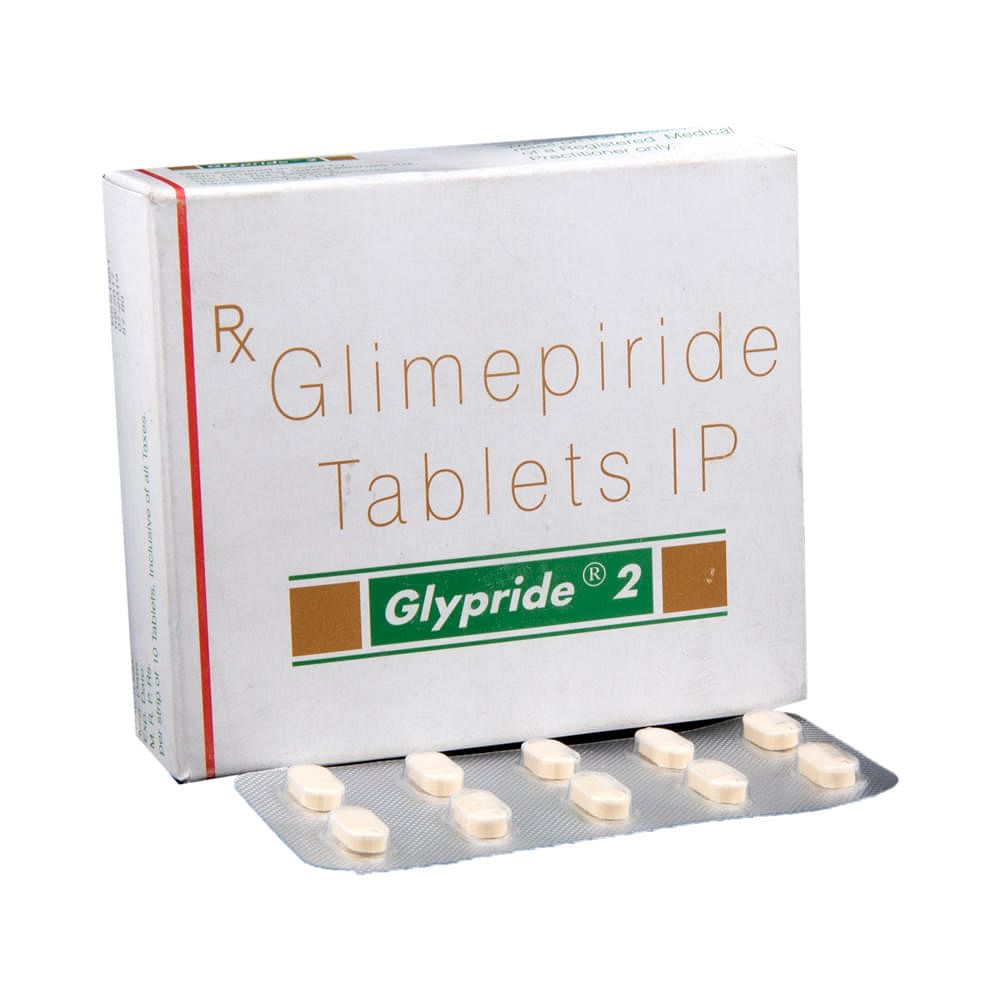
Glypride 2 Tablet

Isryl 2 Tablet

Euglim 2 Tablet
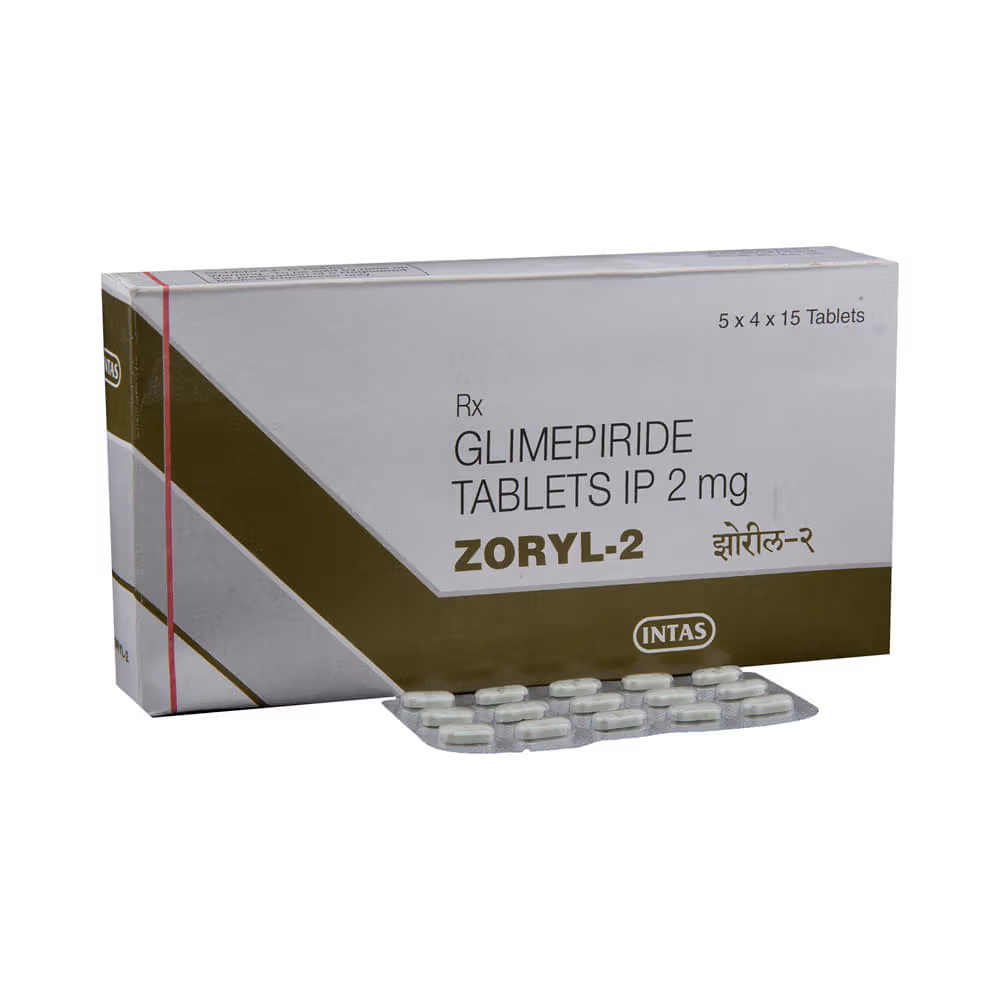
Zoryl-2 Tablet

Azulix 2 Tablet

Glimiprex 2 Tablet

Glimy 2 Tablet
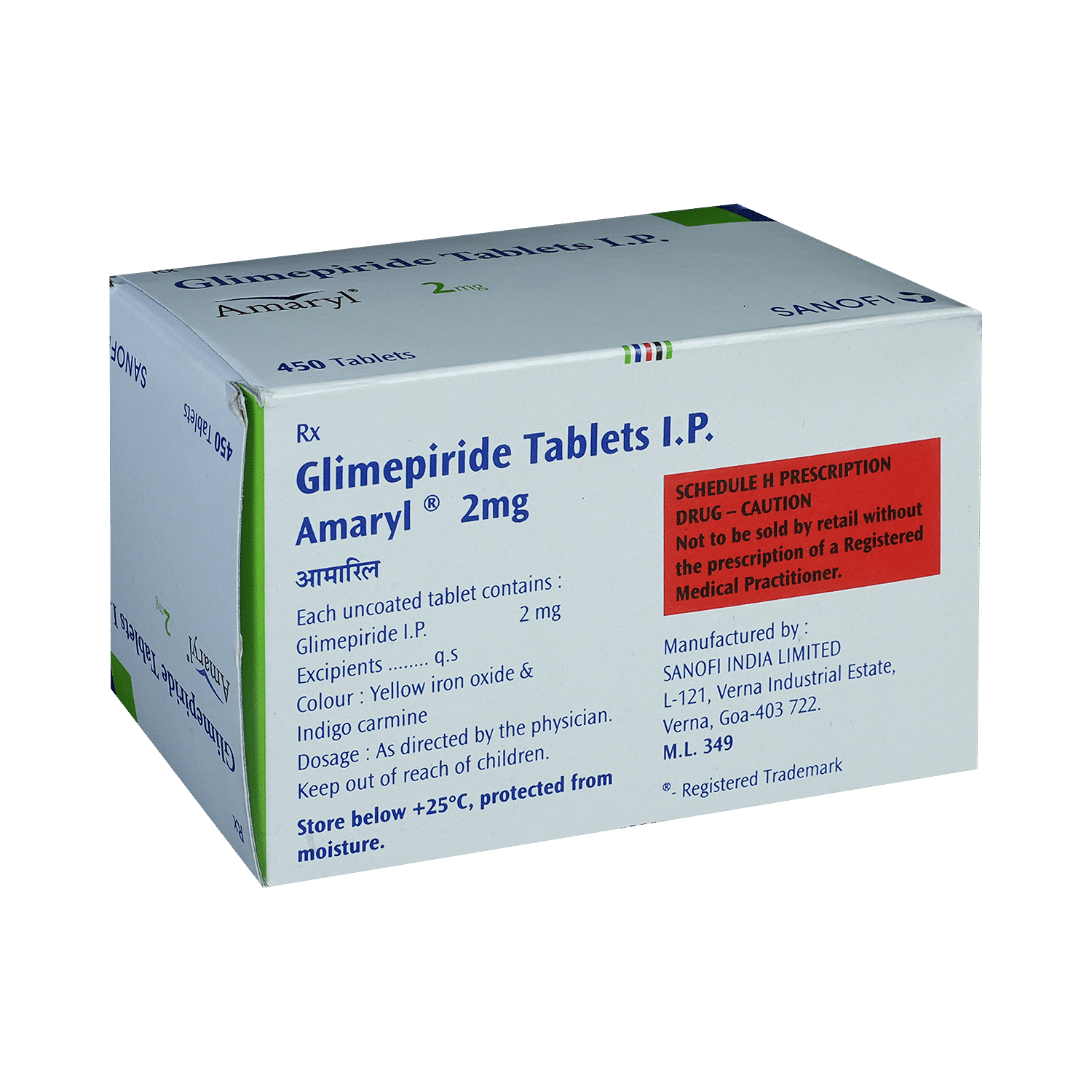
Amaryl 2mg Tablet
Frequently asked questions
What is the recommended dosage of Glimda 2 Tablet?
The starting dose of Glimda 2 Tablet is 1 mg or 2 mg once daily, administered with breakfast. In patients at higher risk for low blood sugar (e.g., the elderly or those with renal impairment), a starting dose of 1 mg per day is recommended. The usual maintenance dose is 1–4 mg once daily. The maximum recommended dose is 8 mg once daily. After reaching a daily dose of 2 mg, the dosage will be increased not more than 2 mg at 1- to 2-week intervals based on your blood glucose level.
Does Glimda 2 Tablet cause drowsiness?
Glimda 2 Tablet itself does not cause drowsiness. However, it may lead to hypoglycemia (low blood sugar) when used in conjunction with other anti-diabetes medications. This can result in feelings of sleepiness or trouble sleeping.
Is Glimda 2 Tablet safe for patients with kidney disease?
Glimda 2 Tablet does not typically affect kidneys in patients with normal kidney function. However, its use should be avoided in patients with severe kidney disease due to its primary elimination via the kidneys.
Does Glimda 2 Tablet cause memory loss?
No, there is no evidence suggesting that Glimda 2 Tablet causes memory loss. However, use of Glimda 2 Tablet may lead to low blood sugar which might affect concentration and alertness.
Who should not take Glimda 2 Tablet?
Glimda 2 Tablet is contraindicated for individuals with known hypersensitivity to the drug, or those with a history of sulfonamide allergy. Individuals with severe liver impairment may need dose adjustment based on the severity.
What should you avoid while taking Glimda 2 Tablet?
It's recommended to limit intake of saturated and trans fats, instead consuming healthy fats from fish and nuts. Moreover, carefully monitoring carbohydrate intake as this directly affects blood sugar levels.
Can Glimda 2 Tablet cause dizziness?
Yes, some individuals might experience dizziness while taking Glimda 2 Tablet. It is advisable to sit or lie down until symptoms subside. Always carry a source of sugary snacks or fruit juice when traveling for unforeseen occurrences.
Can diabetes cause kidney failure?
Yes, uncontrolled diabetes can lead to damage that can progress to kidney failure. If left unmanaged, the condition known as diabetic nephropathy can occur. This condition significantly increases the risk of kidney failure in individuals with diabetes.
Is there a cure for diabetes?
Currently, diabetes management focuses on controlling blood sugar levels through lifestyle changes (e.g., healthy diet and exercise), medications prescribed by healthcare providers, and regular monitoring to maintain quality of life. While a complete cure may not be possible, effective management can allow individuals with diabetes to live fulfilling and active lives.


